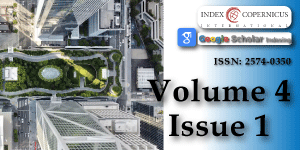A comparative study of solid waste management in the United States, Europe and Asia
Main Article Content
Abstract
Managing municipal solid waste correctly is critical to the success of a society. Many regions and countries in the world are behind others in the context of solid waste management. In order to compare three such regions within this context, a meta-analysis was conducted in order to develop a decision matrix. Within this decision matrix, the United States, Europe, and Asia were compared to determine which region is managing municipal solid waste the best. This research design allowed for compiling information from many sources to increase the accuracy of data used in the justifications for the decision matrix. Purposive sampling was used to select and evaluate sources that discuss solid waste management to discern which region’s processes are most favorable in many parameters. The decision matrix consists of nine parameters: main management techniques; finances; landfill taxes; jobs created; waste generation; waste composition; waste storage, collection, and transportation; energy recovery; and environmental health. Each was scored on a scale from zero to ten, ten being the best score and zero being the worst. The final score from the decision matrix suggested that Europe had the most favorable municipal solid waste management (MSWM) system, and the United States had a notably close yet lower score. Asia had the lowest score that was hardly comparable to the other two regions.
Article Details
Copyright (c) 2020 Karim MA, et al.

This work is licensed under a Creative Commons Attribution 4.0 International License.
Cheng H, Hu Y. Municipal solid waste (MSW) as a renewable source of energy: Current and future practices in China. Bioresour Technol. 2010; 101: 3816-3824. PubMed: https://www.ncbi.nlm.nih.gov/pubmed/20137912
Manaf LA, Samah MA, Zukki NI. Municipal solid waste management in Malaysia: Practices and challenges. Waste Manag. 2009; 29: 2902-2906. PubMed: https://www.ncbi.nlm.nih.gov/pubmed/19540745
Sharholy M, Ahmad K, Mahmood G, Trivedi RC. Municipal solid waste management in Indian cities – A review. Waste Manag. 2008; 28: 459-467. PubMed: https://www.ncbi.nlm.nih.gov/pubmed/17433664
Islam MS, Sultana A, Rasheduzzaman M, Kundu GK, Kamal AKI, et al. Assessment of the present state and economical prospects of solid waste at Amin Bazar waste dumping site, Dhaka, Bangladesh. J Sci Res. 2015; 7: 129-137.
Laerd Dissertation. Purposive sampling. 2019.
Laerd Statistics. Types of Variable. 2019.
Kiker GA, Bridges TS, Varghese A, Seager PT, Linkov I. Application of multicriteria decision analysis in environmental decision making. Integr Environ Assess Manag. 2005; 1: 95-108. PubMed: https://www.ncbi.nlm.nih.gov/pubmed/16639891
Przydatek G. A comparative analysis of municipal waste management systems. Polish Journal of Environmental Studies. 2016; 25: 2107-2112.
Hazra T, Goel S. Solid waste management in Kolkata, India: Practices and challenges. Waste Manag. 2009; 29: 470-478. PubMed: https://www.ncbi.nlm.nih.gov/pubmed/18434129
United States Environmental Protection Agency (USEPA). Advancing sustainable materials management: 2015 fact sheet. 2018b.
European Environment Agency (EEA). Managing municipal solid waste- A review of achievements in 32 European countries. 2013.
Lee P, Sims E, Bertham O, Symington H, Bell N, et al. Towards a circular economy- Waste management in the EU. 2017.
Yadav P, Samadder SR. Environmental impact assessment of municipal solid waste management options using life cycle assessment: A case study. Environ Sci Pollut Res Int. 2018; 25: 838-854. PubMed: https://www.ncbi.nlm.nih.gov/pubmed/29063409
Scortar LM. Study on the financing of the municipal waste management. Managerial Challenges of the Contemporary Society. 9: 106-109.
Modak P, Pariatamby A, Seadon J, Bhada-Tata P, Borongan G, et al. Asia waste management outlook. 2017.
United States Environmental Protection Agency. (USEPA). Economics of waste management and land cleanup. 2018a.
United States Bureau of Labor Statistics (USBLS). Waste management and remediation services: NAICS 562. 2019.
United States Environmental Protection Agency (USEPA). Municipal solid waste landfills. 2018d.
Islam FAS. Solid Waste Management System in Dhaka City of Bangladesh. J Modern Sci Technol. 2016; 4; 192–209.
Hannan MA, Arebey M, Basri H, Begum RA. Intelligent Solid Waste Bin Monitoring and Management System. Australian Journal of Basic and Applied Sciences. 2010; 4: 5314-5319.
United States Environmental Protection Agency (USEPA). Advancing sustainable materials management: 2016 recycling economic information (REI) report. 2016.
Bidlingmaier W, Sidaine J, Papadimitriou EK. Separate collection and biological waste treatment in the European Community. 2004.
Karim MA, Corazzini B. The current status of MSW disposal and energy production: a brief review of waste incineration. MOJ Eco Environ Sci. 2019; 4: 34‒37.
United States Environmental Protection Agency (USEPA). Sustainable materials management: Non-hazardous material and waste management hierarchy. 2017.
United States Environmental Protection Agency (USEPA). Municipal solid waste landfills. 2018c.
Colorado State University. Validity. 2019b.
Colorado State University. Reliability. 2019a.
Himmelfarb Health Sciences Library. Study design 101: Meta-analysis. 2011.
Pamučar D, Božanić D, Ranđelović A. Multi-criteria decision making: An example of sensitivity analysis. Serbian Journal of Management. 2017; 12: 1-27.
Central Intelligence Agency (CIA). The world factbook: United States. 2019a.
Central Intelligence Agency (CIA). The world factbook: European Union. 2019b.
International Monetary Fund (IMF). Gross Domestic Product (GDP). 2019.
Worldatlas. Asia. 2019.

